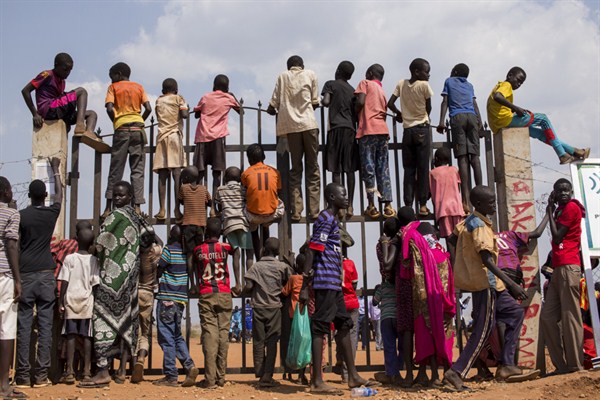South Sudan’s army today claimed that it repelled an attack by rebels allied with former Vice President Riek Machar and regained control of several areas in Unity state from rebel forces. In an email interview, J. Peter Pham, the director of the Atlantic Council’s Africa Center, discussed the status of the fighting and and its economic and humanitarian effects.
WPR: What is the current status of fighting between government forces and rebel groups, and among rebels groups, and what are the obstacles to a political resolution?
J. Peter Pham: South Sudan is in the midst of its annual rainy season, which runs roughly from May until October. Given the country’s general lack of roads and other infrastructure, this hinders the ability of belligerents to move forces about. So while some fighting is happening at the moment—there have recently been some battles over control of oil fields in Unity and Upper Nile states—the clashes have been much more limited than during the dry season. But this relative calm is just a “time out” imposed by the weather. Sadly, the conflict will likely resume with full intensity once the rains end and the terrain becomes more passable.

